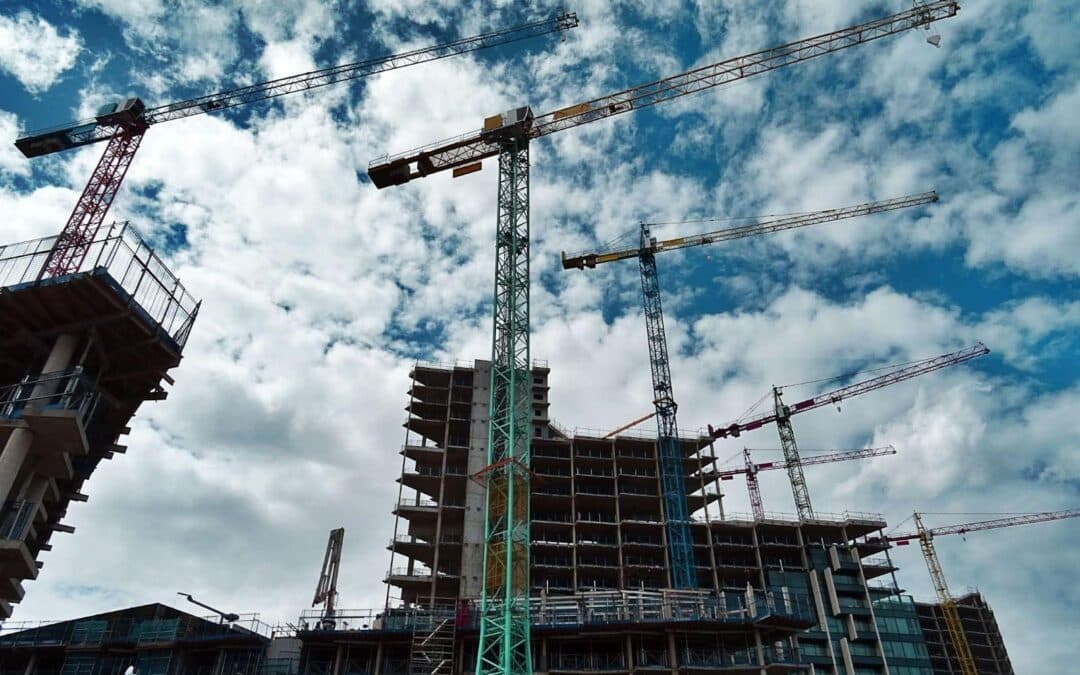In the world of construction, quality is not just a goal; it’s a necessity. Ensuring quality in construction projects is pivotal for the safety, durability, and satisfaction of all stakeholders involved. Whether you’re building a commercial complex, an industrial facility, or a residential home, maintaining high-quality standards is crucial.
In this article, we’ll explore six key ways to ensure that your construction project meets the highest quality standards. From the importance of thorough planning to selecting the best materials, each aspect plays a vital role in the success of your project.
1. Comprehensive Planning and Design
The foundation of any high-quality construction project lies in its planning and design phase. It’s here that all crucial decisions are made regarding the layout, materials, and overall scope of the project. A well-thought-out plan considers all aspects of the build, from environmental factors and potential challenges to client specifications and budget constraints.
Effective planning involves detailed blueprints, realistic timelines, and contingency plans for unexpected issues. This stage is crucial for identifying and mitigating risks before they become problems.
2. Selecting High-Quality Materials
The choice of building materials is crucial in determining the quality and durability of your construction project. Metal building systems, in particular, have become increasingly popular due to their strength, durability, and versatility. These systems offer a range of benefits, including resistance to environmental factors, cost-effectiveness, and ease of installation.
When considering metal building systems, Kirby Building Systems stands out as a leading provider. Partnering with an authorized builder and distributor for Kirby Building Systems ensures that you’re getting the best in terms of quality and reliability.
3. Hiring Skilled and Experienced Contractors
The expertise of the contractors and workers on a construction project is just as important as the quality of the materials used. Skilled and experienced contractors bring a wealth of knowledge and craftsmanship to a project, significantly impacting its overall quality.
When hiring contractors, it’s crucial to vet their experience, review their past projects, and check references. Experienced contractors understand the nuances of construction and can foresee and address potential issues before they escalate. They also stay updated on the latest building techniques and safety protocols, ensuring that the construction process is not only high-quality but also compliant with industry standards.
4. Implementing Rigorous Quality Control Measures
Quality control is the backbone of any successful construction project. Implementing strict quality control measures ensures that every aspect of the project meets or exceeds the set standards. This involves regular inspections and monitoring at every stage of the construction process. Quality control checks should be thorough and frequent, covering everything from the materials used to the workmanship.
Having a dedicated quality control team can be invaluable. They can oversee the project, ensuring that the construction adheres to the planned designs and specifications and identifying any deviations early on. Utilizing checklists and standardized procedures can help maintain consistency and attention to detail. In addition, incorporating feedback loops where issues are not just identified but also promptly addressed is critical for maintaining quality throughout the project lifecycle.
5. Adhering to Building Codes and Regulations
Compliance with building codes and regulations is not just a legal requirement; it’s a critical component of quality assurance. These codes and regulations are designed to ensure safety, durability, and sustainability in construction. Staying informed about local and international building codes and integrating them into the construction process is essential.
This adherence starts in the planning phase, where ensuring that the project design meets all relevant codes is vital. During construction, regular compliance checks should be part of the routine. This might involve working with local authorities or independent inspectors to certify that the project is following all necessary regulations.
6. Leveraging Advanced Technology and Equipment
In today’s construction industry, technology plays a pivotal role in enhancing quality. From project management software to advanced building techniques, leveraging technology can lead to more precise, efficient, and high-quality construction.
Using modern equipment and tools can improve accuracy in measurements and installations, reducing the margin for error. Software solutions can help in project tracking, ensuring that all aspects of the project are progressing as planned. They can also aid in resource management, from material procurement to manpower allocation, ensuring optimal use of resources. Technology like Building Information Modeling (BIM) can provide a virtual representation of the physical and functional characteristics of a project, facilitating better decision-making throughout the construction process.
Conclusion
Ensuring quality in your construction project is a multifaceted process that demands attention to detail, expertise, and a commitment to excellence. From the initial planning and design to the final touches, each step plays a crucial role in determining the project’s success.
Using high-quality materials, coupled with skilled labor, rigorous quality control, adherence to regulations, and leveraging modern technology, sets the foundation for a construction project that stands the test of time.

